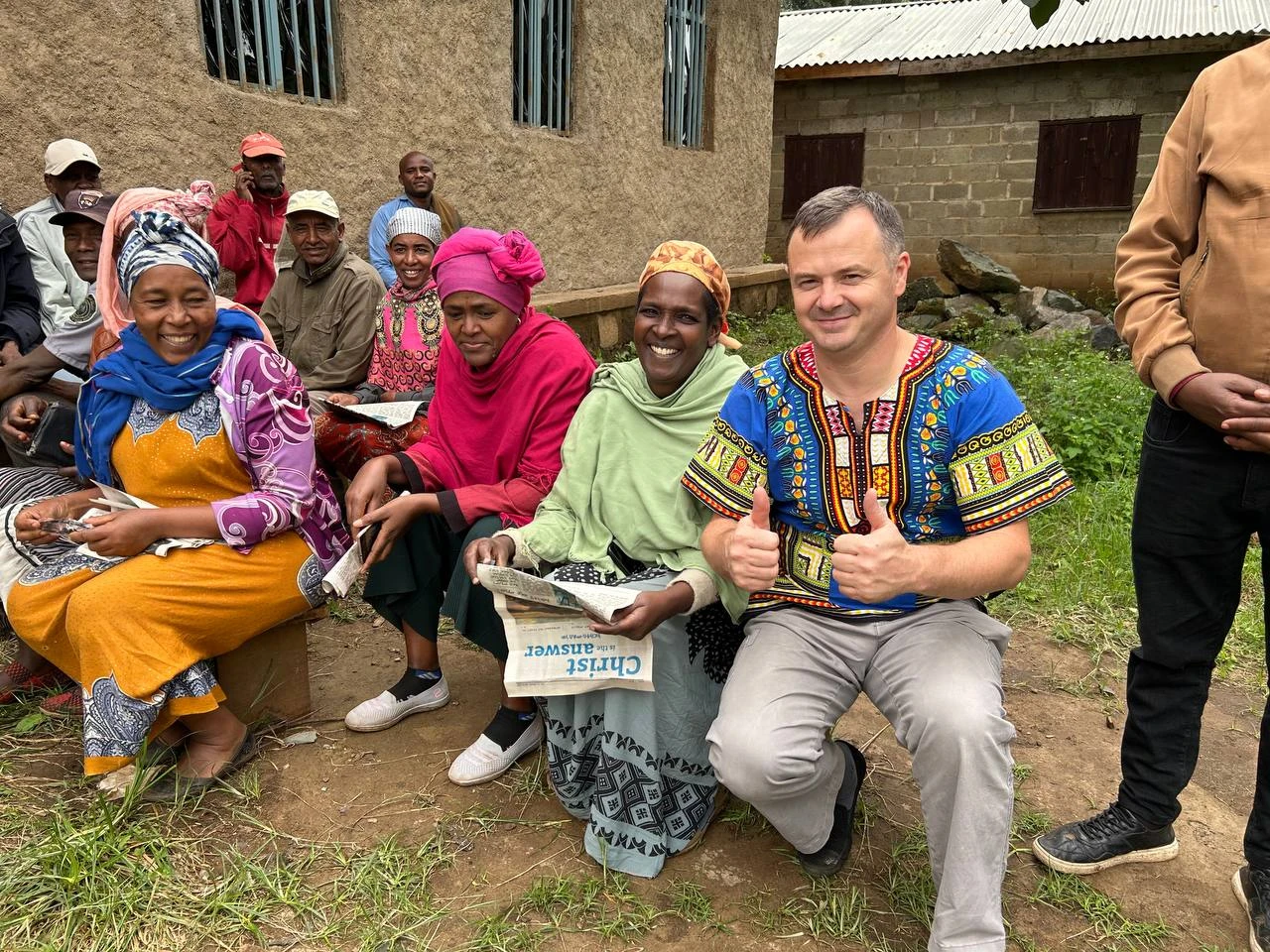“Each time we see God heal various diseases and deliver from demonic influence” – how Ukrainian missionaries serve in Ethiopia
9 August 2024
Pastor and missionary Taras Sen has been visiting Ethiopia for three and a half years as part of his gospel crusades. After another crusade in July, he told us how he prayed with a crowd of 120,000 people for peace in Ukraine. He also shared how several thousand Ethiopians receive free eyeglasses each time and how Muslims rescued Christians from the police station. Read about these and other interesting events in the interview.
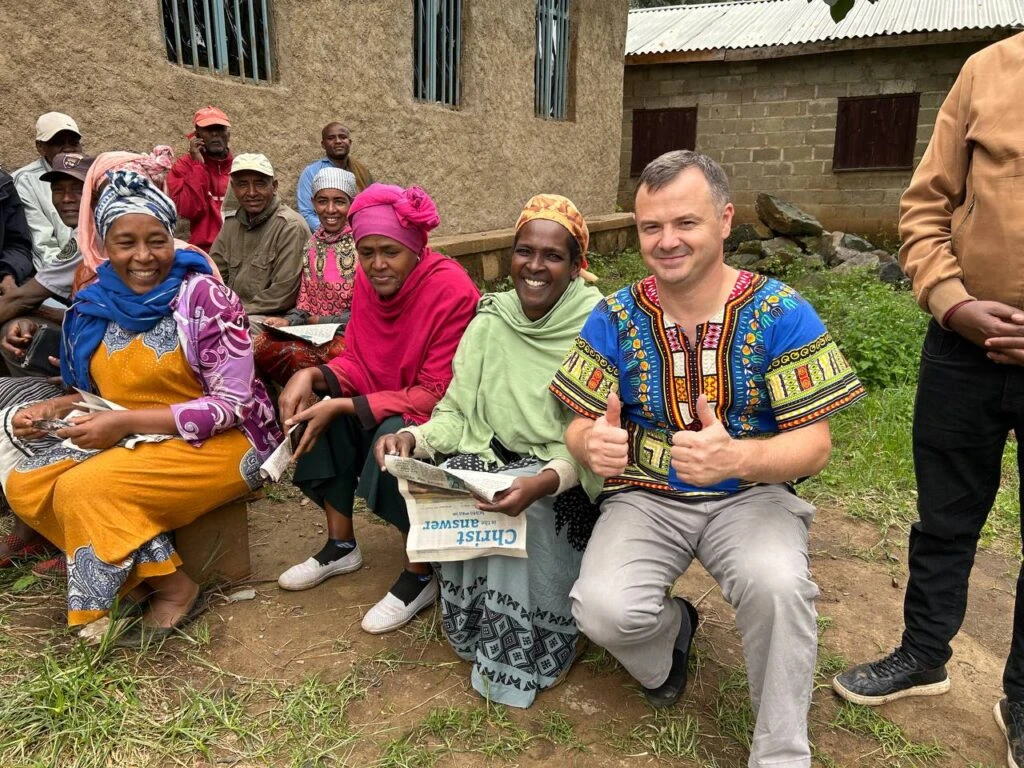
Taras Volodymyrovych, first tell us about your 11th trip to Ethiopia. What do you remember?
We are thankful to God that we had the opportunity to visit Ethiopia again. Christ is the Answer International Ministry, together with local pastors, held the tenth crusade in Boditi, a city in southern Ethiopia.
The special thing about this crusade, in my opinion, was the many physical healings. God healed people of diseases of the heart, eyes, and locomotor system. I saw with my own eyes how a man who had very poor eyesight could see clearly at a great distance after the prayer. Another man had problems with his leg. After the prayer he ran, jumped and stood confidently on his feet. Many people received deliverance from evil spirits during the crusade.
During the Gospel crusade we prayed for peace in Ukraine. Wherever I went, I spoke about the situation in our country, and Ethiopians prayed for an end to the war, for which I am sincerely grateful.
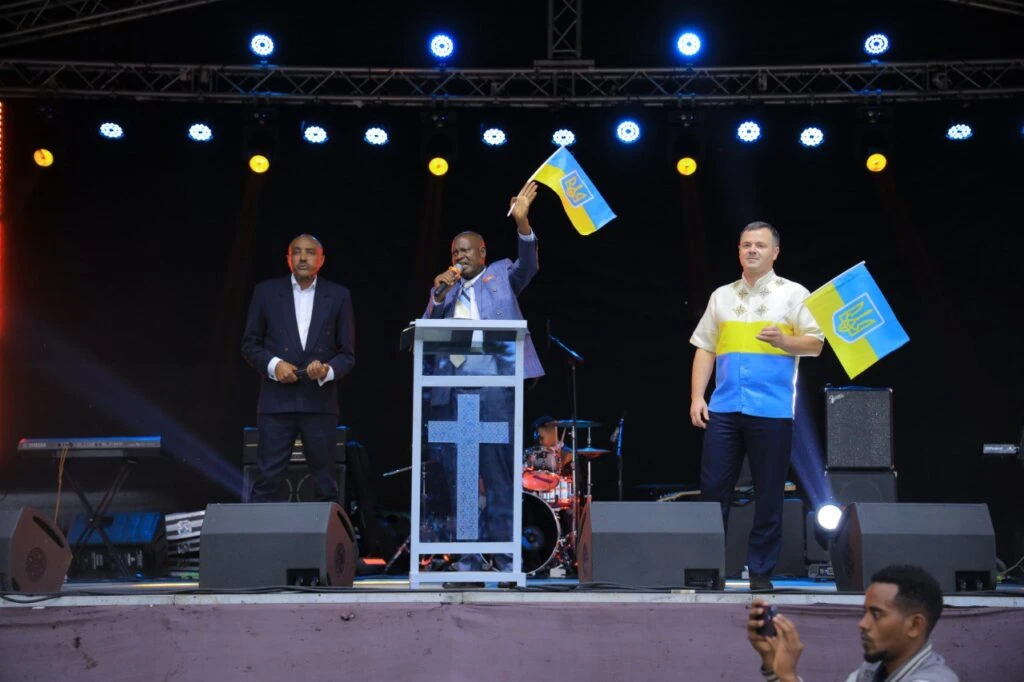
Another feature of this trip was that we did children’s evangelism and I met with local Sunday school teachers and youth leaders. A pastoral conference was also held for two days. At a charity eye clinic, a thousand Ethiopians, including many Muslims, received eye exams and free glasses. We had a wonderful family meeting where we talked about building a happy family and restoring broken relationships. I participated in a water baptism. 20 people, including Muslim converts to Christianity, took vows to serve God for the rest of their lives.
I preached at Christ is the Answer Church in Addis Ababa. In total, missionaries have opened 23 churches in Ethiopia. For two days I taught at a missionary school where we train future pastors and ministers. We were able to accomplish another important project. I participated in the shooting of four evangelistic programs that will be broadcast on a national TV station.
The trip was intense, we have good results and hope to see more positive changes.
You have 23 years of experience as a pastor of an evangelical church, so you have a lot to say to Ethiopian pastors. Could you tell us more about what you spoke about at the pastors’ conference?
At the pastors’ conference, I spoke about the responsibilities of a pastor and the dangers of ministry. I emphasized that the most important duty of a pastor is to take care of the church. How exactly? The first is to prepare people to meet God and be saved. And the second is to prepare them to serve God.
In the Bible, in the book of the prophet Ezekiel, God severely rebukes the shepherds who were negligent in their ministry, saying: “Son of man, prophesy against the shepherds of Israel; prophesy, and say to them, even to the shepherds, Thus says the Lord God: Ah, shepherds of Israel who have been feeding yourselves! Should not shepherds feed the sheep? You eat the fat, you clothe yourselves with the wool, you slaughter the fat ones, but you do not feed the sheep. The weak you have not strengthened, the sick you have not healed, the injured you have not bound up, the strayed you have not brought back, the lost you have not sought, and with force and harshness you have ruled them.”
(Ezek. 34:2-4)
Therefore, it is important to pay attention to the wounded. There are many wounded people in the churches: some have spouses who are far from God, some have suffered trauma or violence, others have lost everything they had. Our task is to care for such people.
When it comes to clothing, it is what others see. Sometimes pastors do everything they can to look respectable. But they may not be interested in the problems of the people in the church. That’s why God says, “Woe to such pastors!“
I also emphasized that each person should know his or her responsibility and fulfill it to the best of his or her ability. God says, “Shouldn’t shepherds shepherd the flock? Shepherding means taking care of them: giving them clean water, healthy food, and protection.
The pastor is also obligated to give the people who listen to him sound teaching based on the Word of God. This means preparing sermons so that people can get answers to their questions and grow spiritually.
He spoke of the sin of negligence. When the priesthood offered sacrifices in the days of the prophet Malachi, God said: “When you offer blind animals in sacrifice, is that not evil? And when you offer those that are lame or sick, is that not evil? Present that to your governor; will he accept you or show you favor? says the Lord of hosts.”
(Malachi 1:8)
Even our preaching is a kind of sacrifice. But what kind of sacrifice is it – good or crooked, blind? It is worth pondering this question, lest God reproach us for our negligence.
Each of these journeys is always full of events, meetings, and important tasks. Do you get tired because of the heavy workload? How do you deal with tiredness and difficulties?
There are always enough difficulties. But there is no time to relax during a crusade. Whether I like it or not, I have a great responsibility. People are waiting and I have to give them the best. By the way, when Ukrainian missionaries are greeted with such a great welcome, it is a little more difficult, because I realize that they have high expectations. But we see God’s hand in everything, and with God’s help we overcome all difficulties and obstacles.
Of course, in order to avoid unforeseen situations, both the Ukrainian and Ethiopian teams are diligently preparing for the crusade: fasting, prayer, working with people, invitations, and preparing the stadium. That is why we see the victory that the Lord is giving.
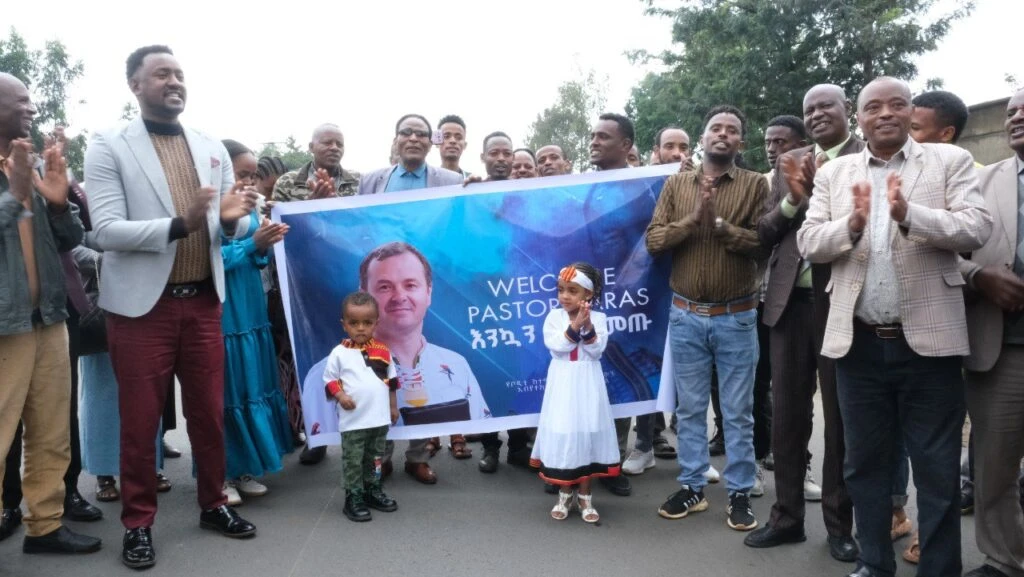
What have you personally learned during this crusade in Ethiopia?
First of all, I learned to trust God even more. Because during the three and a half years of ministry, there were many different obstacles: people with evil intentions, difficulties in conducting the crusade, and other things that we did not see but felt.
I became convinced that if the Lord God is behind something, it will happen no matter what. Difficulties build trust in God. It is also important to hear God’s voice and be in His will, not to rush, but also not to lag behind.
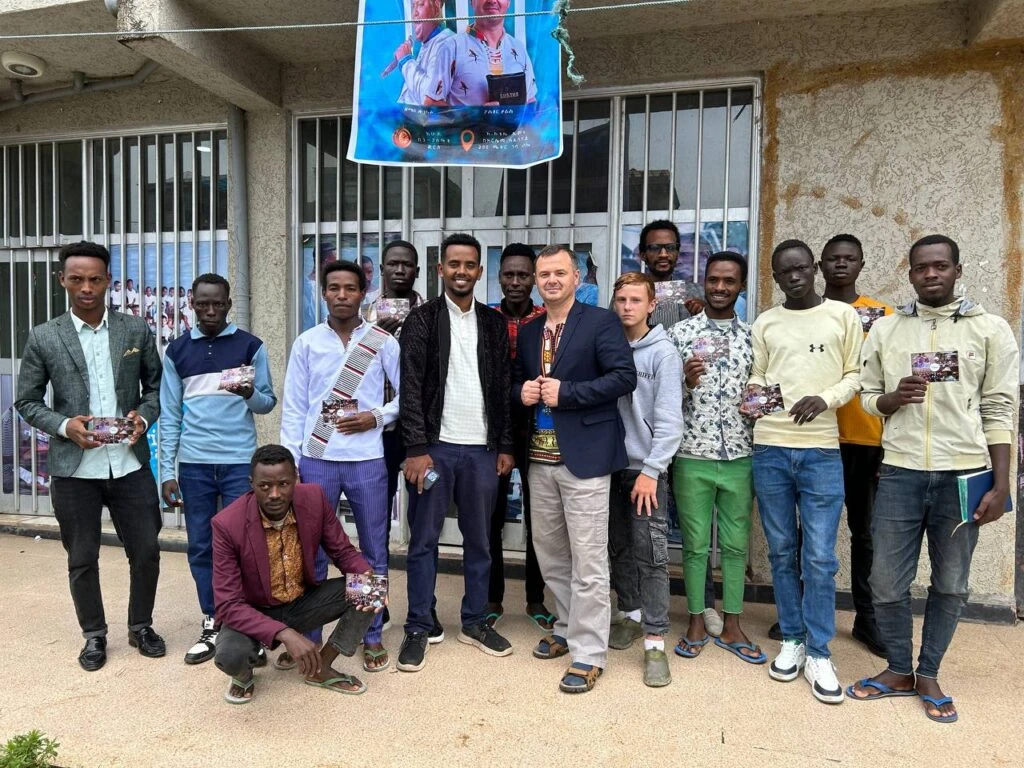
Tell us about the results of your ministry. A lot has been done in three and a half years.
If you look at our work in Ethiopia in general, the local pastors tell me that we have introduced them to two completely new areas. Those are eye clinics and family ministries.
A family ministry was formed at one of the church associations we work with. The ministers are working to make sure that family ministries in churches develop even more. We plan to prepare some materials on this topic and distribute them in other African countries.
It is good to see many people saved. During all the crusades, thousands of people came to Christ and became eager to serve God.
Every time during the crusade, we see God heal people of various diseases and deliver them from demonic influence. People’s lives change, they become free and happy. This brings joy to me and everyone involved in the Christ is the Answer ministry. Of course, I do not know all the results, but I believe the work will continue.
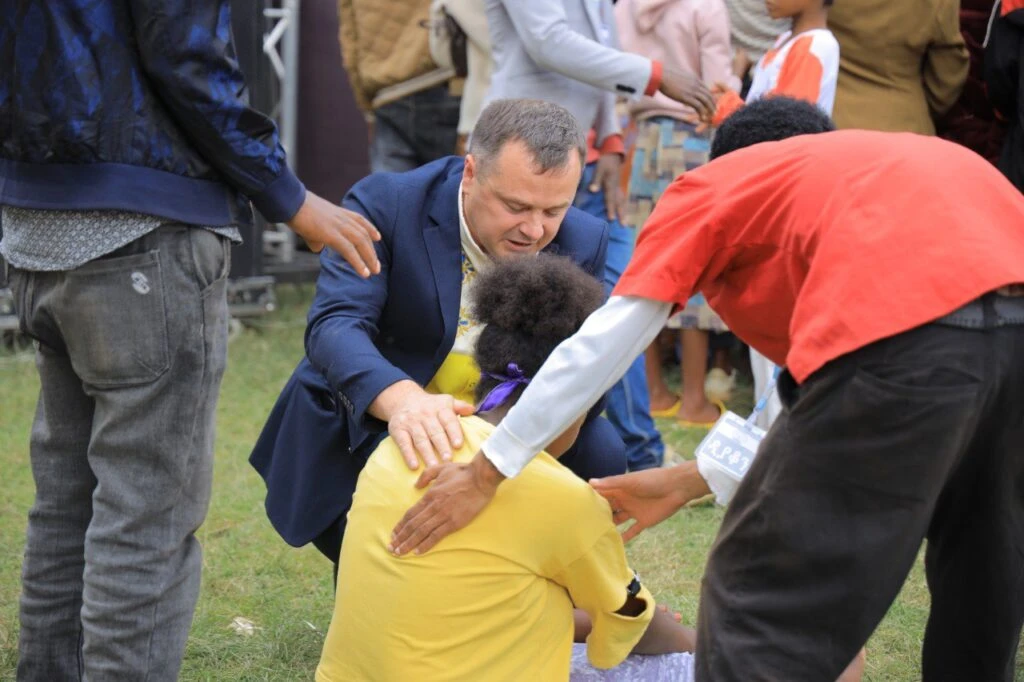
Why do you think the eye clinics have proven to be a really valuable tool for evangelism in Ethiopia?
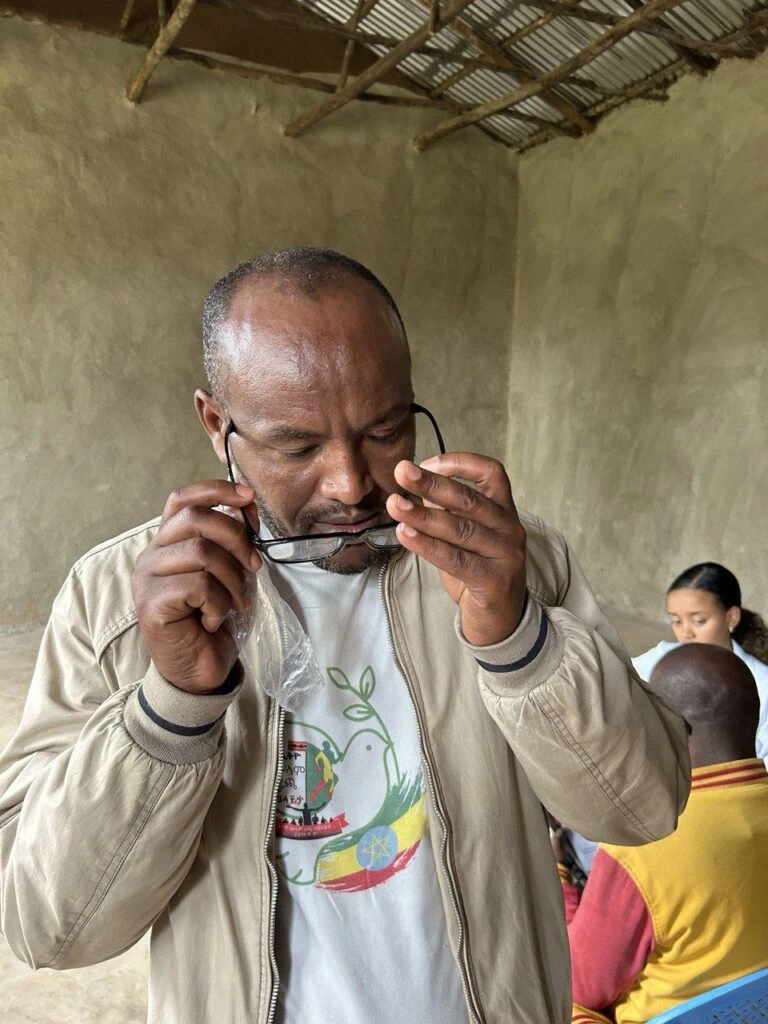
The fact is that eye clinics are always relevant everywhere because most people’s eyesight deteriorates with age. An important point is that it is easy to attract people from other religions: in our case, many Muslims come. People need medical care and they hear about God. And that, in turn, softens and improves relations between churches.
There are regions in Ethiopia where people are extremely hostile to Christians. However, our missionaries have held eye clinics in Muslim towns and this has significantly changed attitudes towards Christians.
There was even a case where our missionaries went to a Muslim city and made a preliminary agreement with the authorities to hold an eye clinic. But it was a verbal agreement without written permission. Therefore, the entire team was arrested by the police for illegally organizing the event. When Muslims who had previously received glasses from our missionaries learned of this incident, they gathered in front of the police station and demanded that the missionaries be released because “they brought us free glasses. It is extremely rare for Muslims to demand the release of Christians.
In many other places, Muslim ministers and government officials have changed their attitudes toward Christians because of the eye clinic, because it is really practical, real help. There’s another important point. Ethiopia is a poor country, so many people cannot afford medical checkups and glasses.
In my opinion, family ministry is important everywhere. Especially at a time when we see the distortion of the family created in the image of God. Tell us about the specifics of this ministry on the African continent.
We have brought a new format of family ministry to the Ethiopians. In addition to teaching, we give people tasks, listen, ask questions, and play interesting games. For example, I give tasks for husbands and wives to give compliments to each other, to write love messages on cards that we made especially for family meetings.
As a minister, husband and father, I give some practical recommendations for families. For example, one day a week should be family time, completely separated from all other activities. This is necessary to play soccer with the kids, fix the kitchen door, fix the faucet, spend time alone together, and so on. When we start doing this, it will improve family relationships.
Next, I recommend that we always have breakfast, lunch or dinner together. This time together is a good way to unite the family.
Then I emphasize that the husband is the priest in the house, and there should be Bible reading and prayer together. It is important to know your role and responsibilities in the family. Many things need to be done together: planning the budget, raising the children, solving problems, and so on.
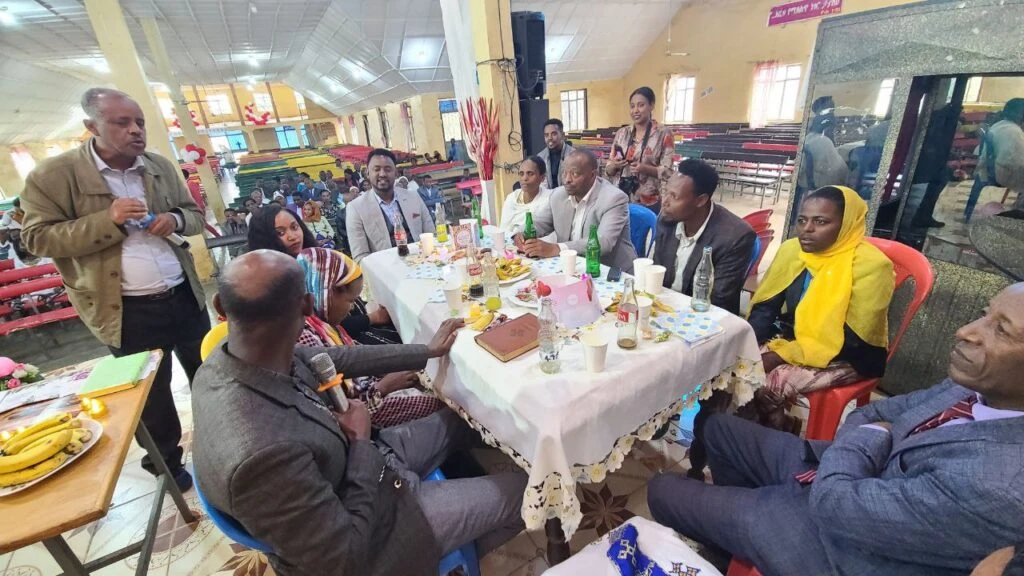
Ethiopia is a very interesting country. What is the most unique thing you have encountered?
I liked Ethiopian cuisine even though it is very different from ours. Ethiopia has a rich culture. I met people from different tribes, each with their own customs – some interesting, some not so much.
There are areas where people live without electricity, gas, water and in mud houses. On the other hand, you can walk down the street in Addis Ababa and feel like you are somewhere in Europe. Everything is so well done that it’s hard to believe. Even though there are extremely poor areas in the capital.
I was very impressed by the stories of many people, how they came to God, what miracles God has done in their lives. I learned some things from them and was pleasantly surprised to see how God uses people, what He puts them through, how He helps them.
I was very impressed by the fact that there were practically no drunk people or people with cigarettes on the streets. In a country of 125 million people it is rare to see that.
Lastly, tell us about your future plans for ministry in Ethiopia.
We are training pastors in a mission school to plant new churches. In the near future, we plan to do this in the western part of Ethiopia, closer to Sudan. We also want to print the Christ is the Answer newspaper in the language of that region. The thing is that there are many languages in Ethiopia. Amharic and Oromo are the two main ones, but there are other languages in which we want to print our newspaper.
With God’s help, we plan to hold the eleventh crusade in the fall. Soon we want to start regular television broadcasts. We also have an agreement to hold eye clinics in other African countries.
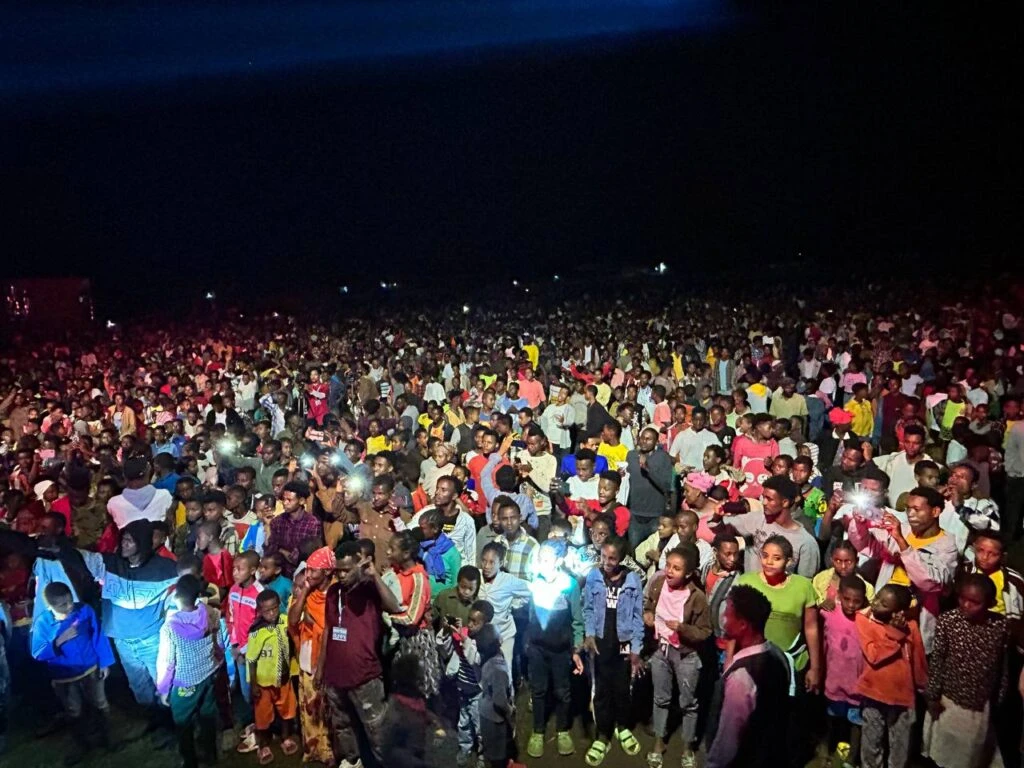
Interview conducted by Tetiana Pasko
Press Center of Christ is the Answer Ministry
